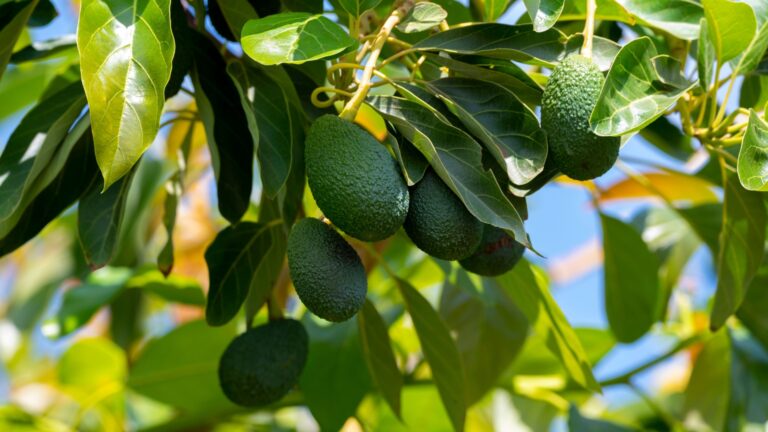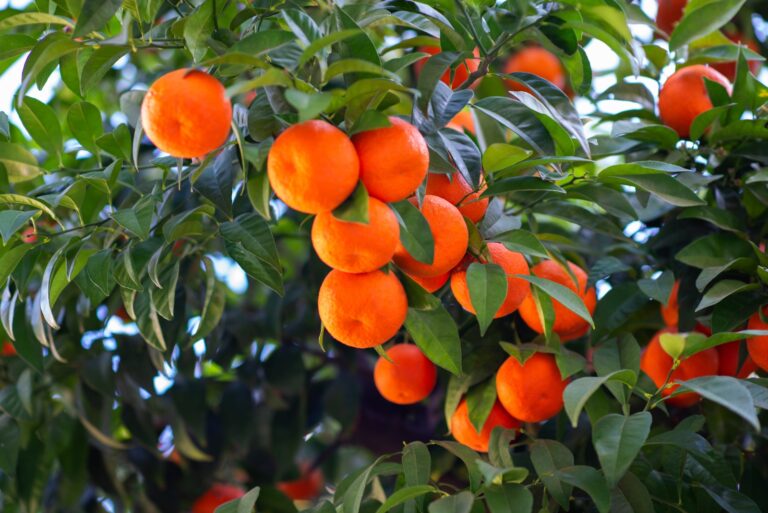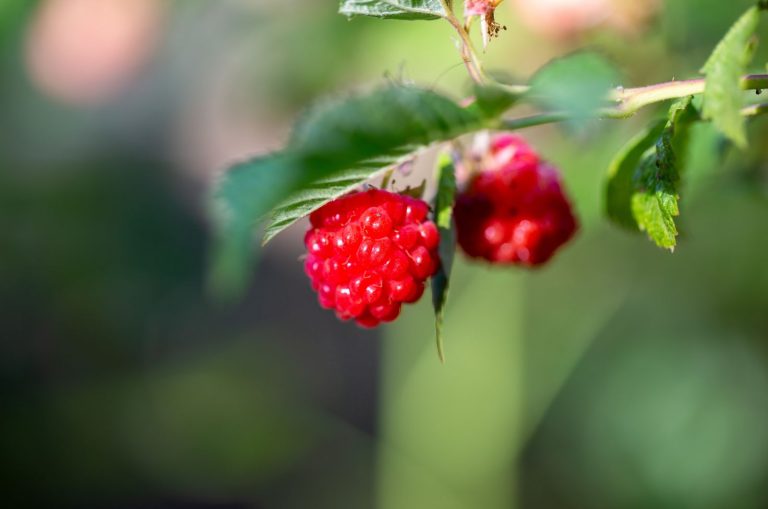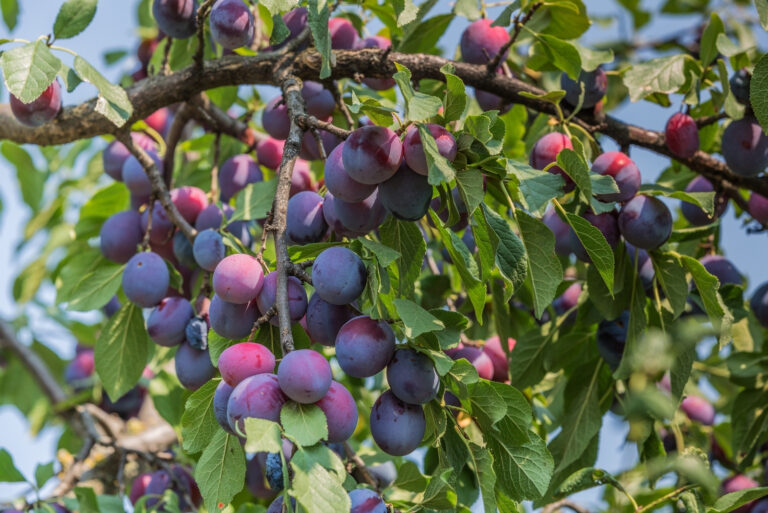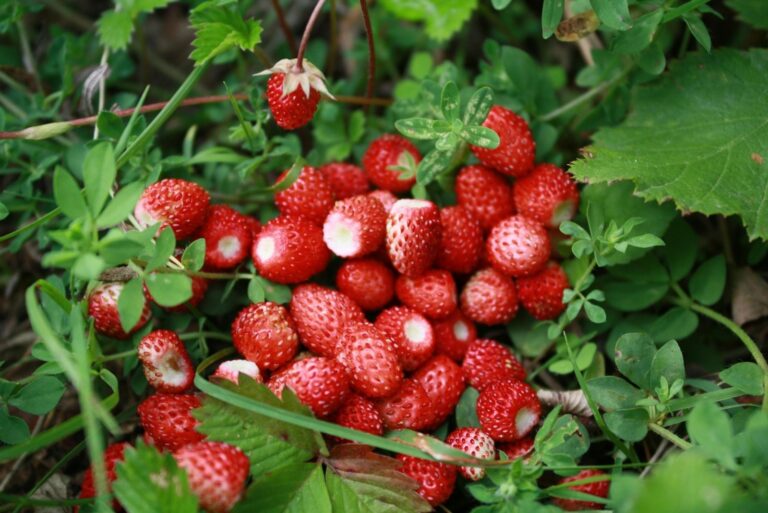13 Fruit Trees To Skip When Planting In North Carolina
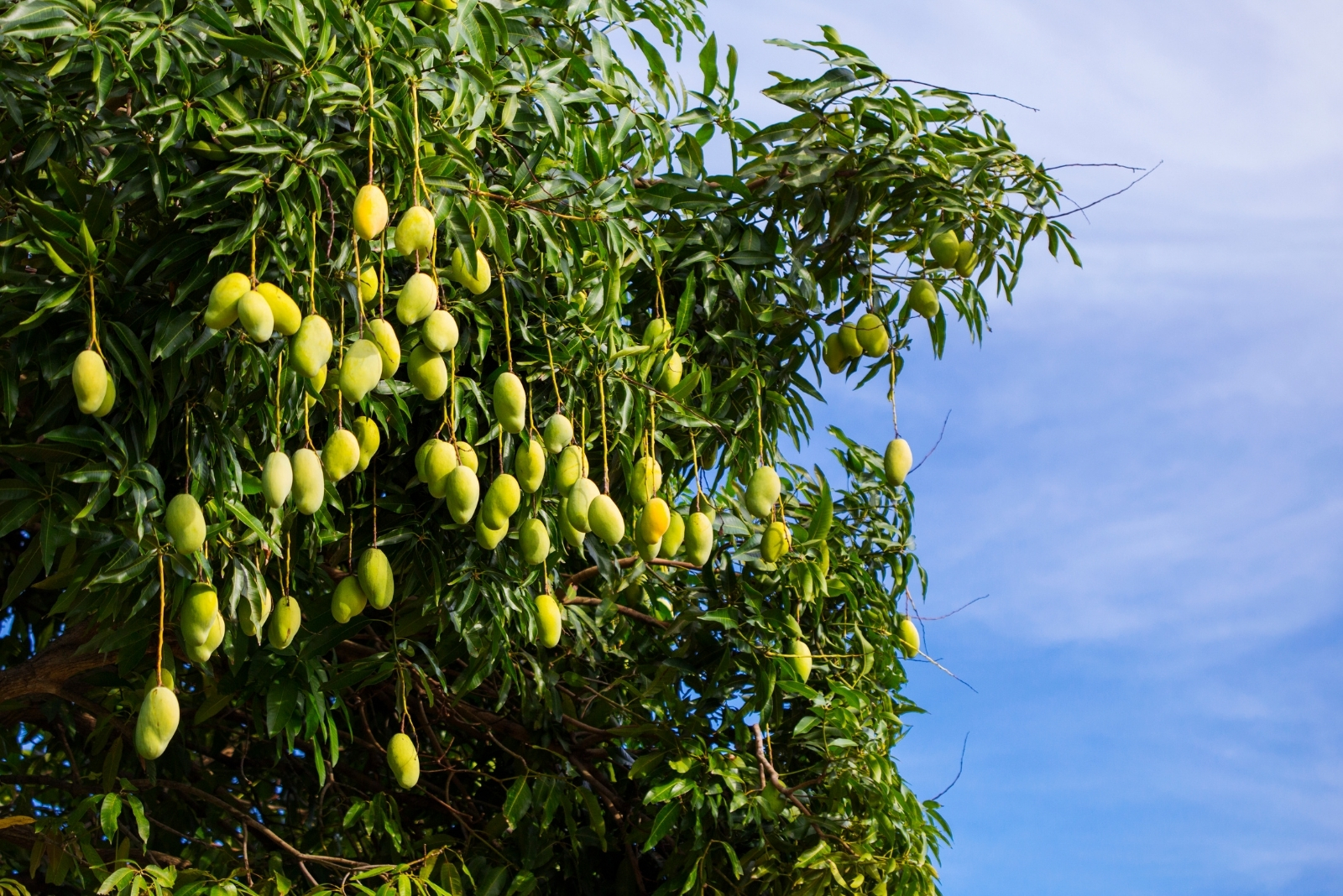
Not all fruit trees are a good fit for North Carolina’s climate and soil. Some struggle with pests, disease, or poor growth, making them more trouble than they’re worth.
Choosing the wrong tree can turn your orchard dreams into a headache. These are the fruit trees you’ll want to avoid planting in the state.
1. Avocado
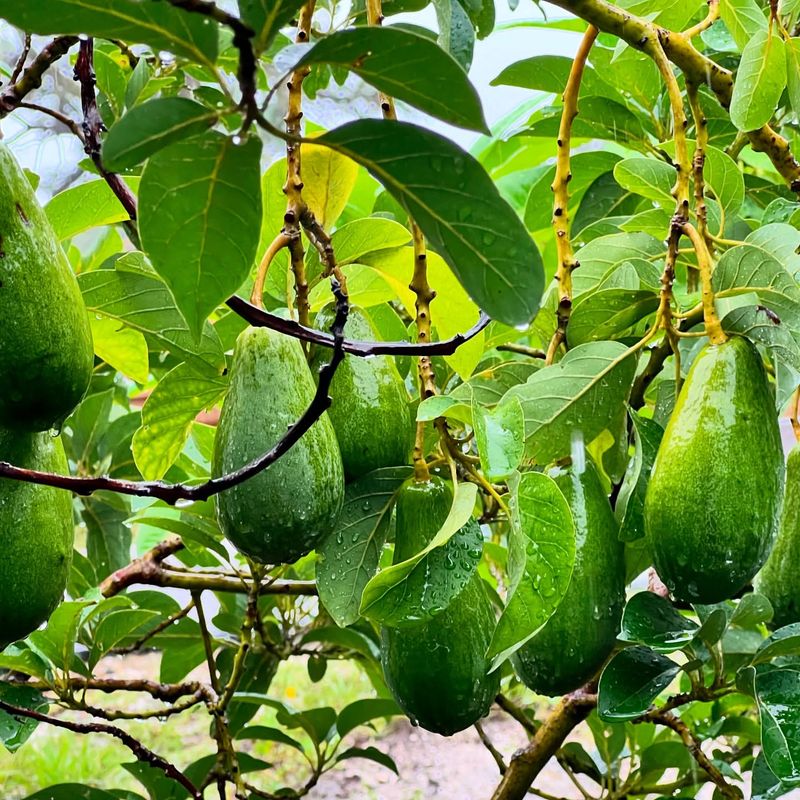
Ever tried growing these tropical favorites in North Carolina? Our winter temperatures dip too low for these sensitive trees to survive outdoors. Most avocado varieties need temperatures consistently above 50°F to thrive.
Even container-grown specimens struggle when brought inside during North Carolina winters due to insufficient light. Save yourself the heartbreak and enjoy store-bought avocados instead.
2. Mango
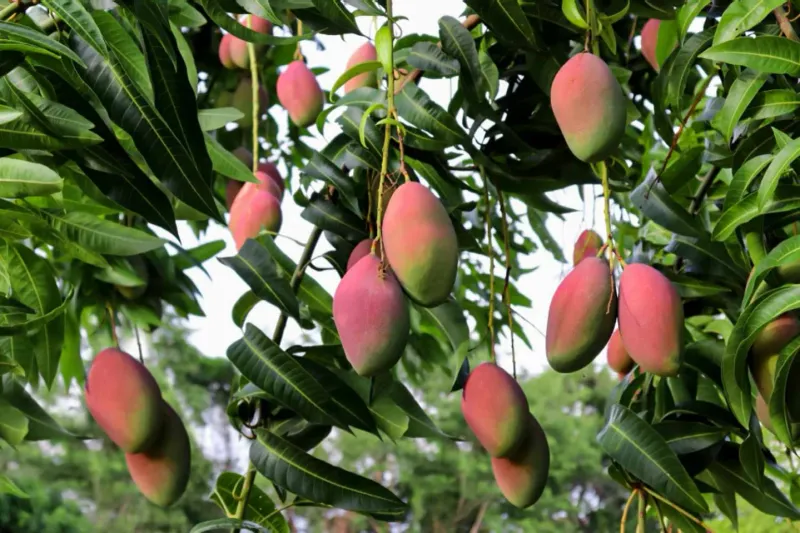
Tempting as tropical fruit might be, mangoes simply can’t handle North Carolina’s climate. These heat-loving trees start showing stress when temperatures drop below 40°F and suffer permanent damage near freezing.
Many hopeful gardeners across the state have tried growing them in containers with disappointing results. The humidity levels in NC might seem promising, but our winters prove too harsh for these tropical treasures.
3. Citrus
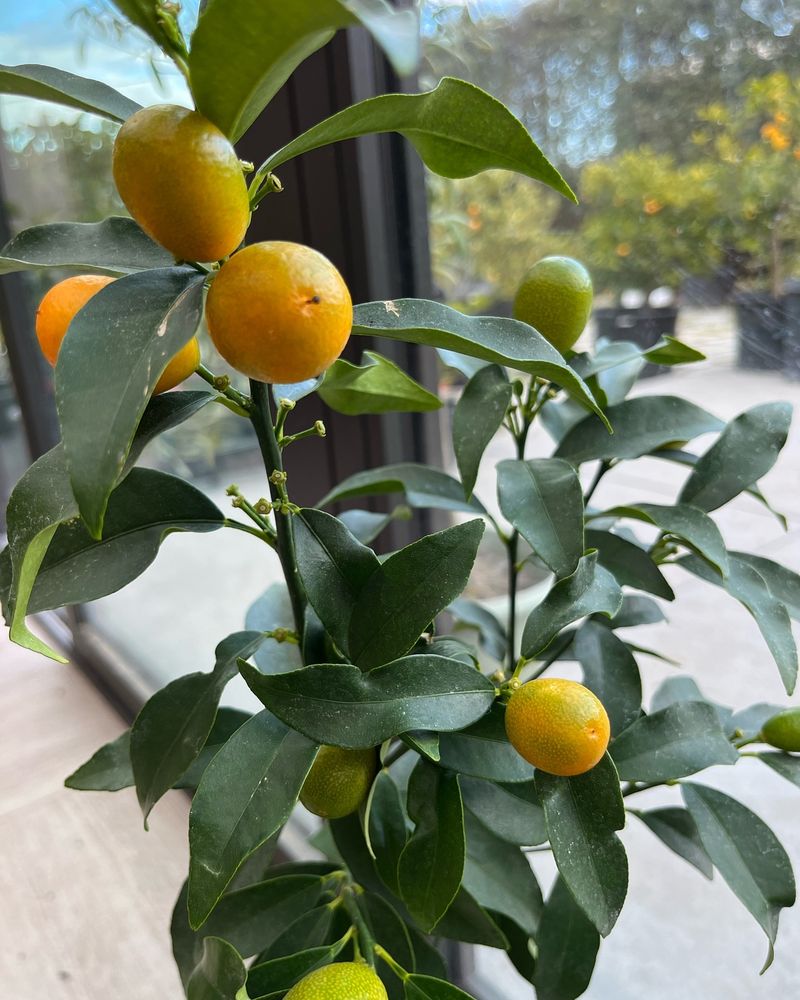
While lemons and limes make wonderful container plants, they rarely survive as permanent landscape trees in North Carolina. Most citrus varieties suffer damage when temperatures drop below 28°F, which happens regularly during our winters.
Even cold-hardy varieties like kumquats struggle in the northern parts of the state. The constant moving indoors and outdoors stresses these trees, making them susceptible to pests common in North Carolina gardens.
4. Banana
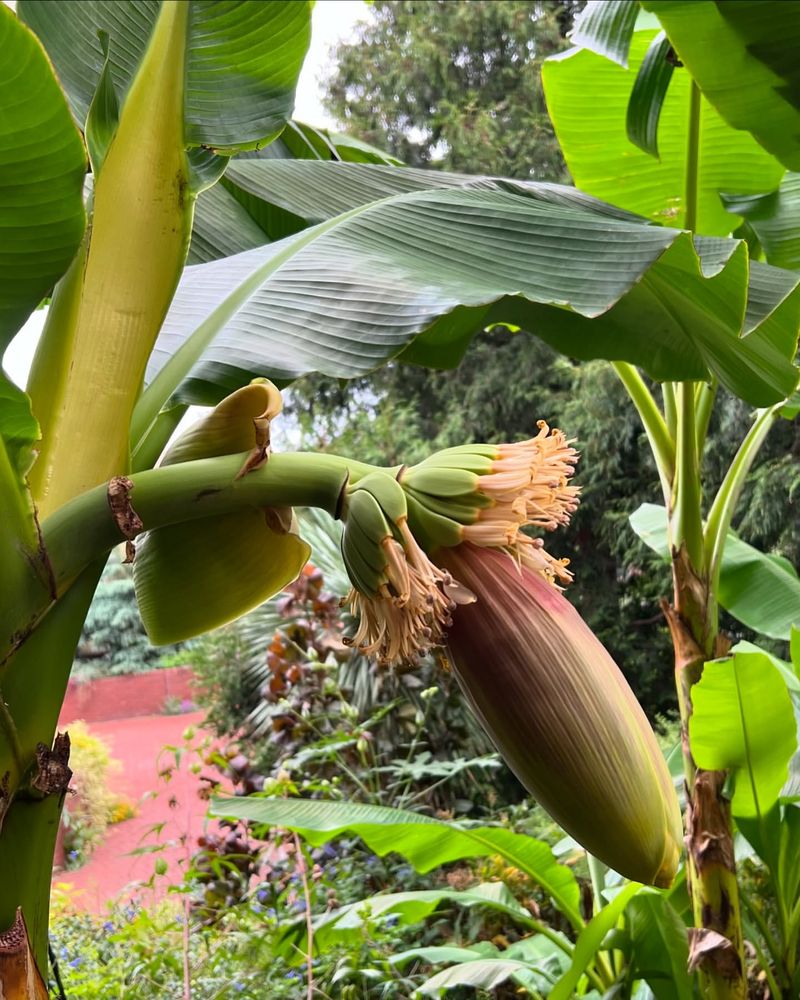
Though technically not trees but herbaceous plants, bananas tempt many North Carolina gardeners with their tropical allure. The problem? Our winters kill them to the ground almost every year, preventing fruit production in most varieties.
Even ornamental types struggle to reach their full potential in most North Carolina gardens. The growing season simply isn’t long enough after winter recovery for these plants to flower and produce fruit reliably.
5. Papaya
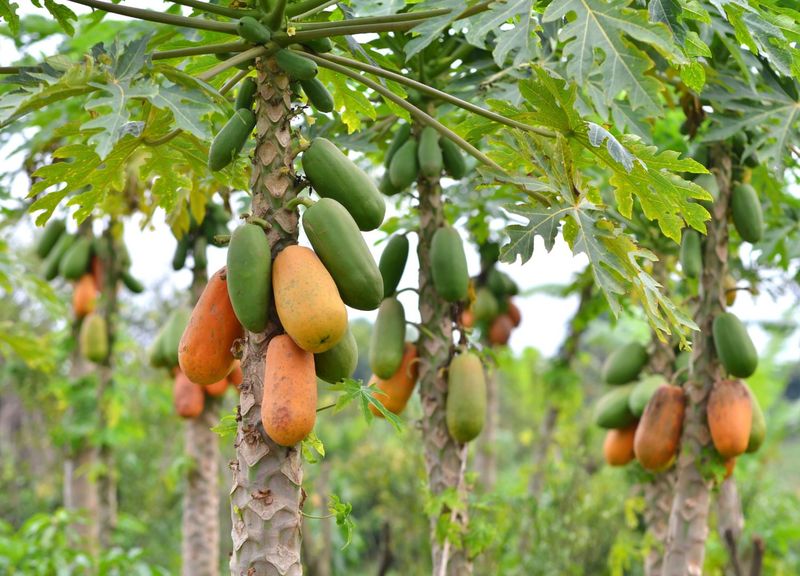
Fast-growing and exotic, papayas lure gardeners with promises of tropical fruit. Unfortunately, North Carolina’s winter temperatures spell certain death for these heat-loving plants that can’t tolerate anything below 31°F.
Even in the warmest coastal areas of the state, papayas rarely survive long enough to produce quality fruit. Their shallow root systems also make them vulnerable to our occasional strong storms and hurricanes that affect North Carolina.
6. Breadfruit
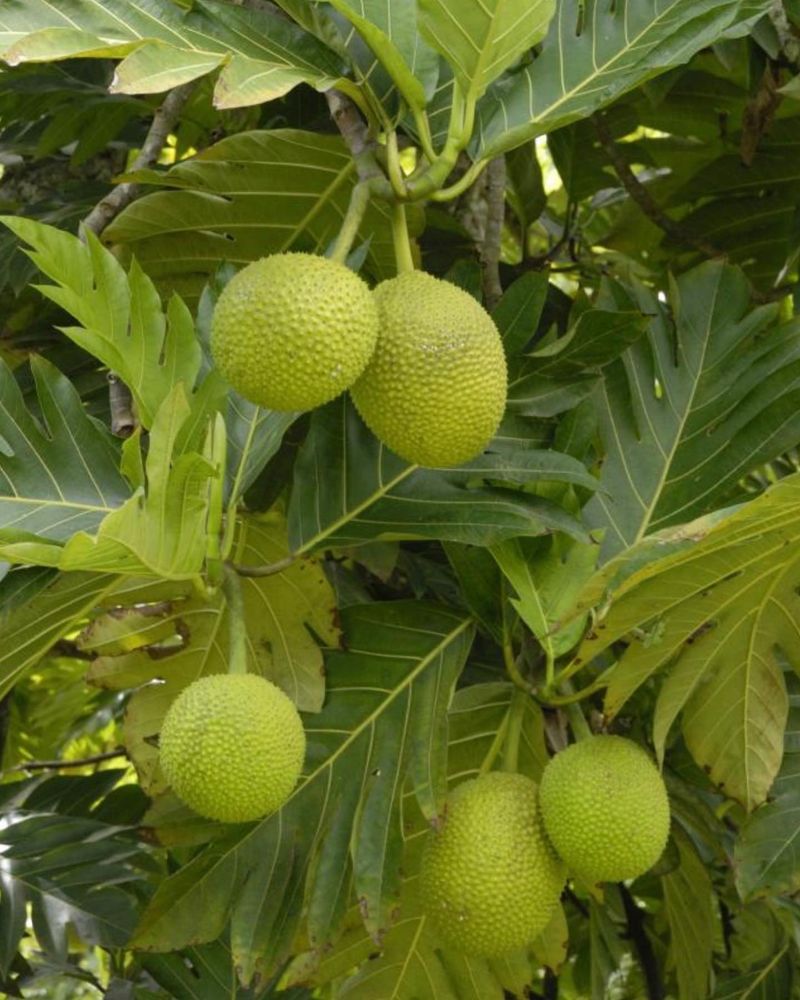
This staple food throughout the Pacific has gained attention for its versatility, but don’t bother trying it in North Carolina. Breadfruit trees are extremely cold-sensitive and begin showing damage at temperatures below 50°F.
Our state’s climate is simply too cold during winter months for these tropical trees to survive. Even in greenhouses across North Carolina, they struggle to get enough light during our shorter winter days.
7. Jackfruit
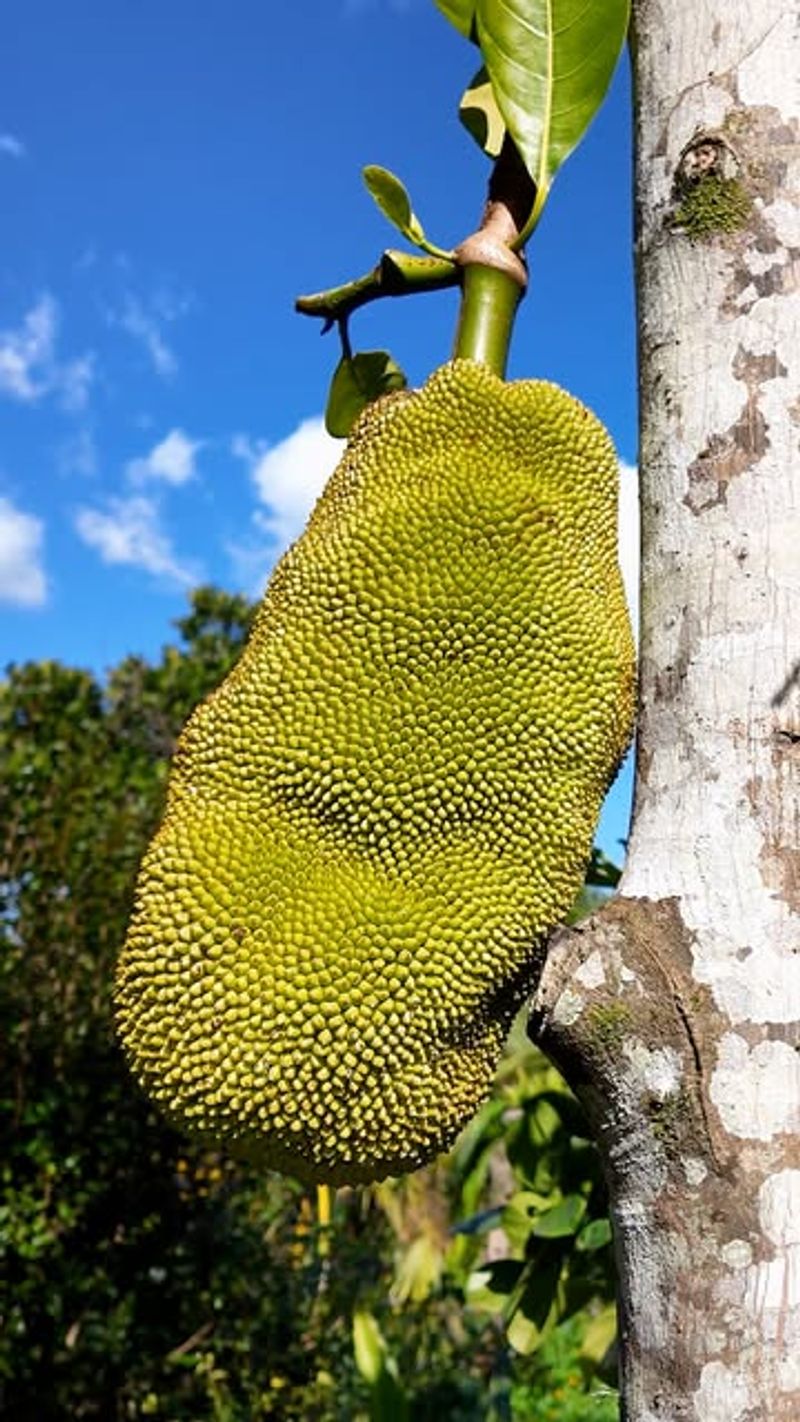
Related to breadfruit, jackfruit trees produce the largest tree-borne fruit in the world. However, these giants are completely unsuited to North Carolina’s growing conditions and cannot tolerate temperatures below 35°F.
Several botanical gardens across the state have attempted to grow them in protected areas without success. Their massive fruits, which can weigh up to 80 pounds, never develop properly in our North Carolina climate.
8. Lychee
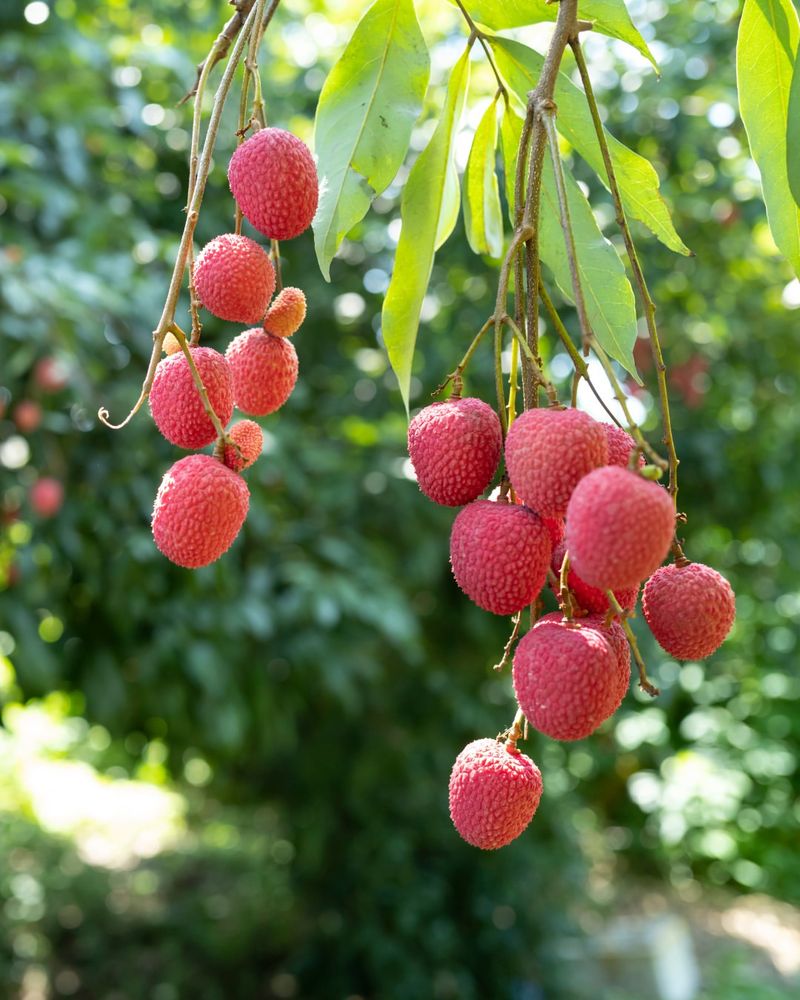
These delicious Asian fruits might seem tempting, but lychee trees perform poorly in North Carolina. They require very specific climate conditions and suffer damage when temperatures drop below 28°F, which happens regularly during our winters.
Humidity levels in our state might seem appropriate, but the cold spells prove too stressful. Many gardeners throughout North Carolina have tried growing them in containers with consistently disappointing results.
9. Coconut Palm
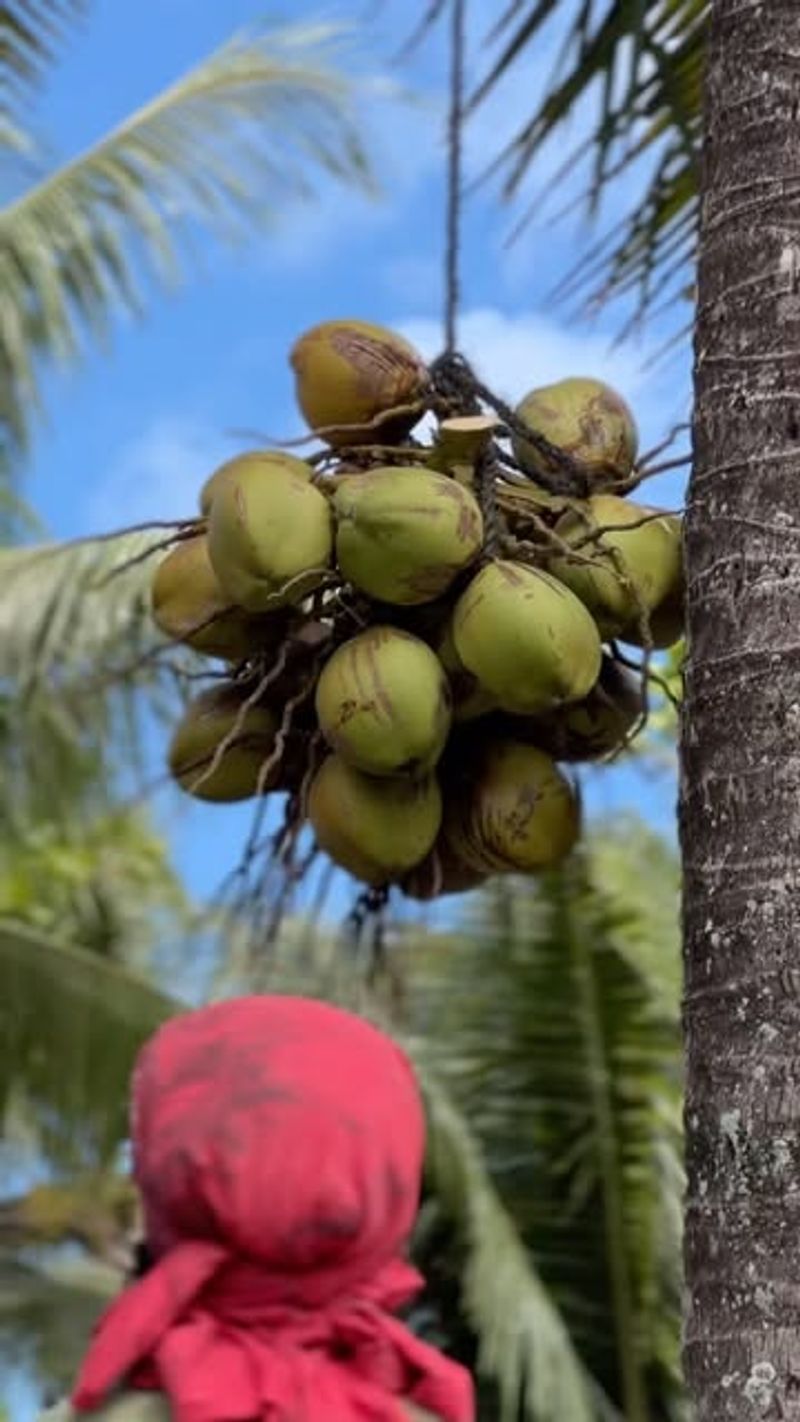
While not typically considered for fruit production, some adventurous North Carolina gardeners attempt growing coconut palms. These iconic tropical plants simply cannot tolerate our winter temperatures and will die when exposed to freezing conditions.
Even in the most sheltered coastal microclimates of the state, coconut palms fail to thrive. Their salt tolerance might seem perfect for NC beaches, but our occasional cold snaps make them a poor investment.
10. Guava
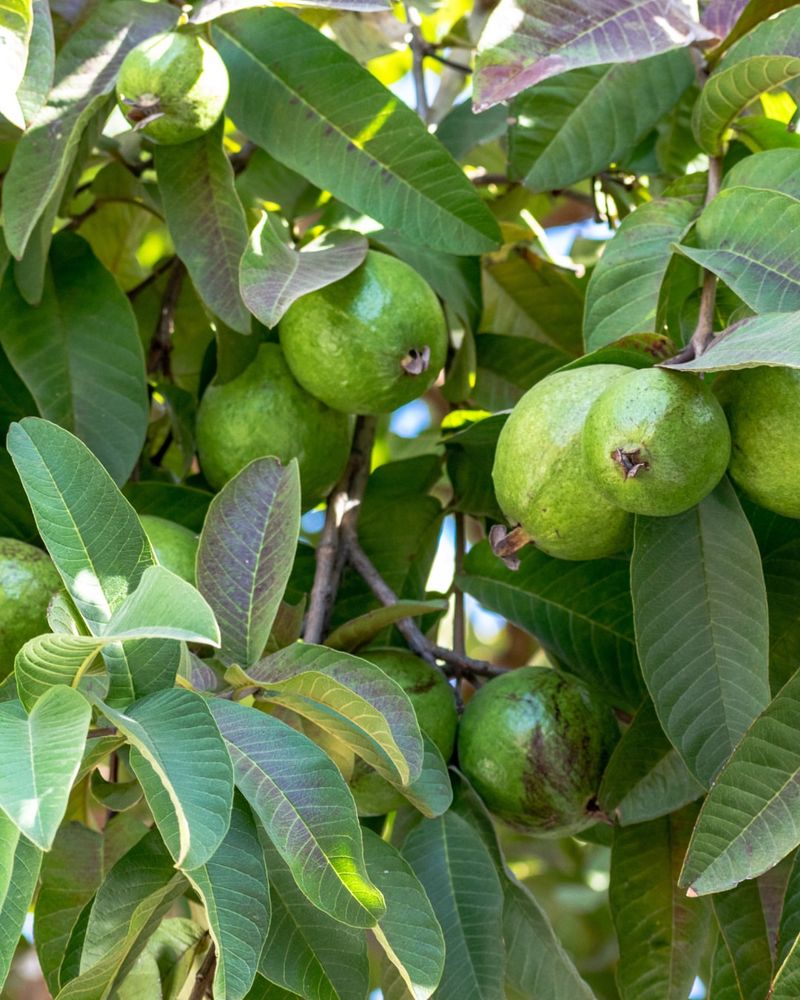
The tropical aroma of guava might seem worth trying, but these trees consistently disappoint in North Carolina. Most varieties suffer severe damage or death when temperatures drop below 28°F, which happens regularly in our climate.
Even the more cold-hardy strawberry guava struggles in most parts of the state. Many garden centers across North Carolina mistakenly sell them as suitable for our growing conditions, leading to frustrated gardeners.
11. Starfruit
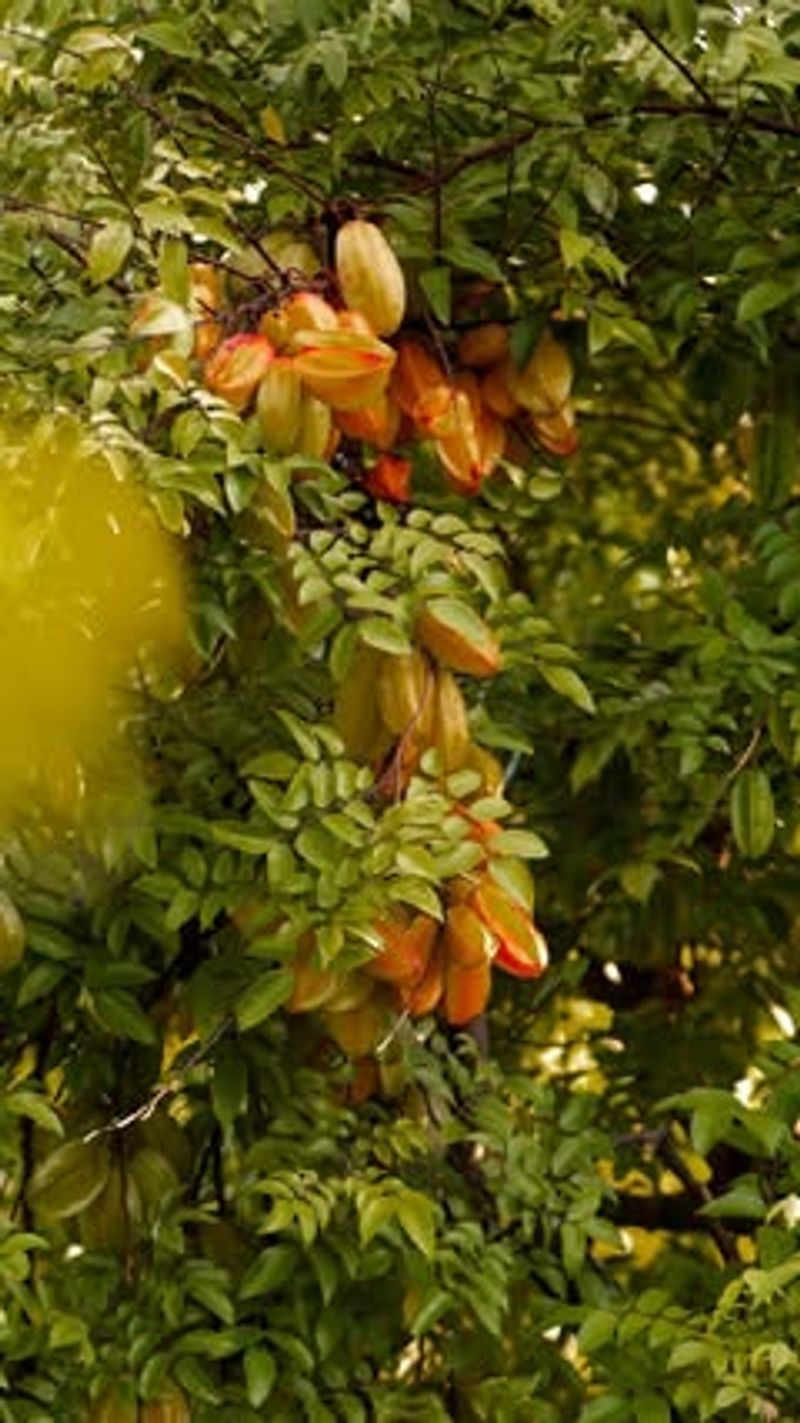
Those distinctive star-shaped slices make starfruit trees tempting, but they’re notoriously cold-sensitive. Any temperatures below 30°F cause significant damage, making them unsuitable for North Carolina’s climate.
The sandy soils in parts of our state might seem promising for their drainage needs, but winter temperatures remain the dealbreaker. Several botanical collections throughout North Carolina have documented their failures with this species even in protected settings.
12. Durian
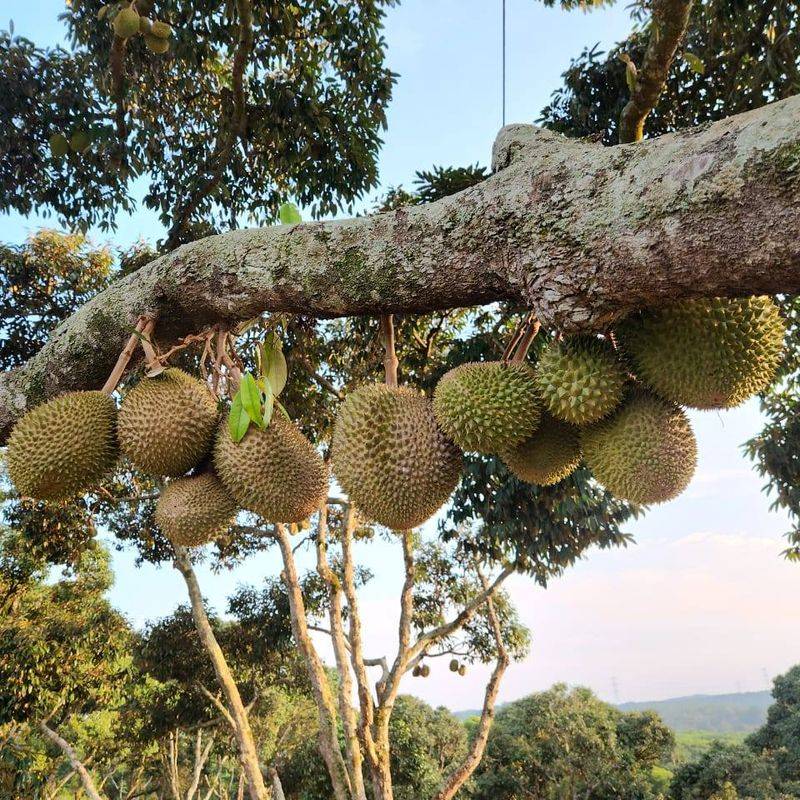
Known as the world’s smelliest fruit, durian might not be missed by some North Carolina neighbors! These tropical trees cannot tolerate temperatures below 45°F and would quickly perish in our climate.
Their massive fruits never develop properly outside their native tropical environments. Several agricultural extensions across North Carolina list this as one of the most unsuitable fruit trees for our growing conditions.
13. Mangosteen
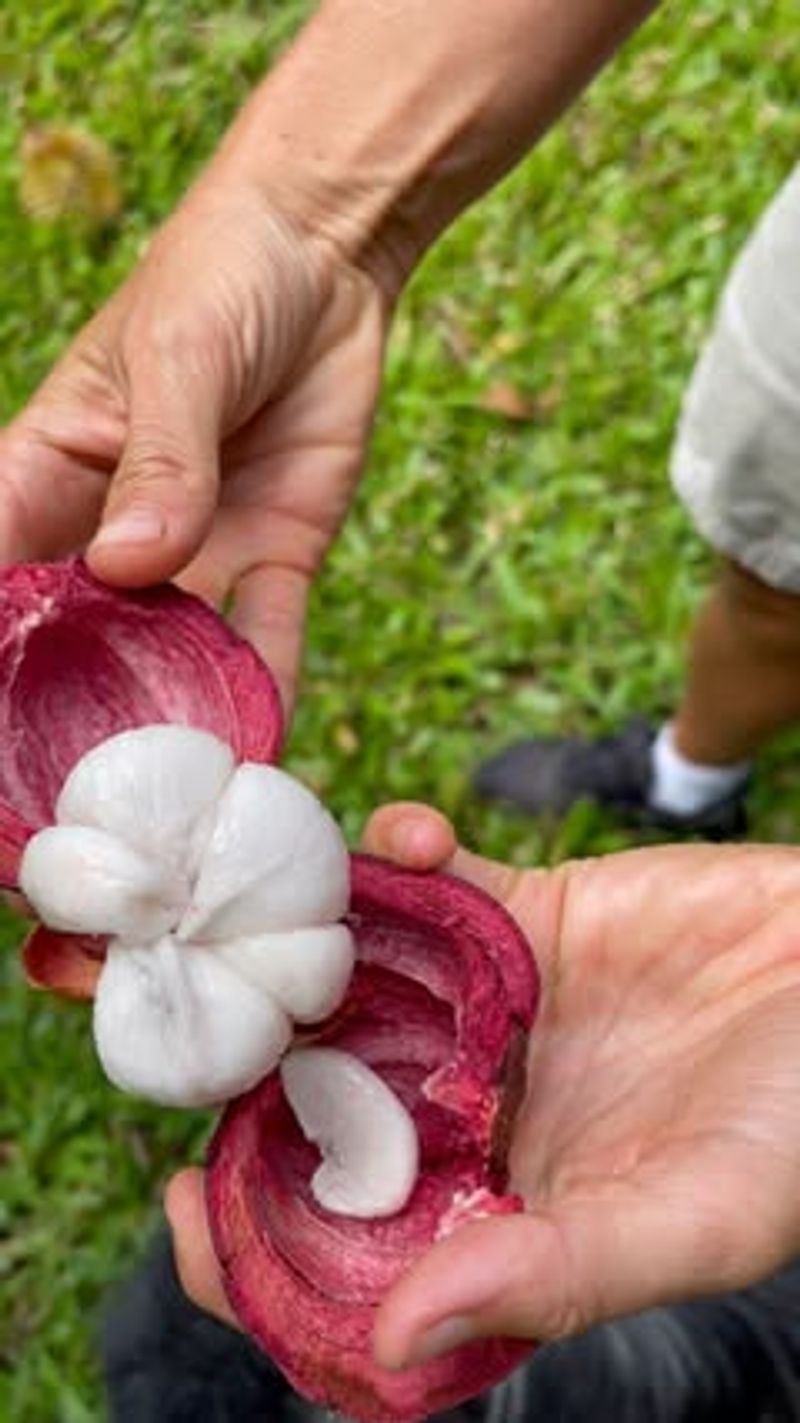
Often called the queen of tropical fruits, mangosteen trees demand perfect tropical conditions. They show stress at temperatures below 40°F and suffer severe damage below 32°F, making North Carolina completely unsuitable.
Their extremely slow growth rate further compounds problems in our climate. Even the most determined gardeners across the state report consistent failure with this species, despite its popularity and delicious reputation.

